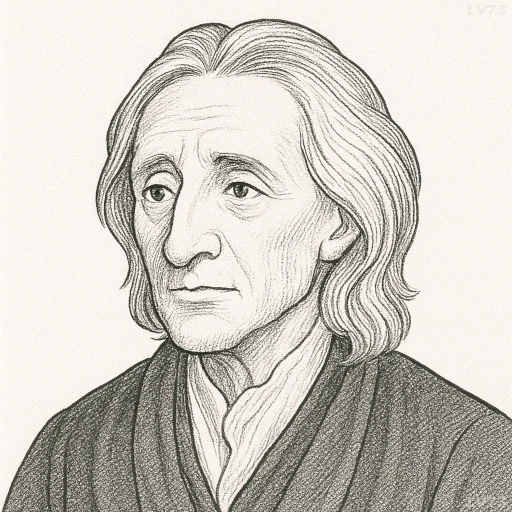“An excellent man, like precious metal, is in every way invariable; A villain, like the beams of a balance, is always varying, upwards and downwards.”

- August 29, 1632 – October 28, 1704
- Born in England (UK)
- Philosopher and political thinker
table of contents
Quote
“An excellent man, like precious metal, is in every way invariable; A villain, like the beams of a balance, is always varying, upwards and downwards.”
Explanation
In this quote, John Locke compares the character of an excellent man to precious metal, suggesting that a truly virtuous person is constant and steadfast in their principles, much like how precious metal maintains its value and integrity. The invariability of a good person contrasts with the instability of a villain, who is likened to the beams of a balance, constantly shifting between good and bad. Locke’s observation highlights his belief in the importance of consistency in character. A virtuous person is predictable in their actions and moral integrity, while someone of poor character is capricious and driven by self-interest, making them unreliable and untrustworthy.
Locke’s philosophy, developed during a time of political and social turbulence in 17th-century England, often emphasized the significance of personal virtue and moral responsibility. In this period, society was grappling with questions of governance, individual rights, and the nature of justice. Locke believed that a good government could only function if its citizens exhibited consistent moral behavior. By drawing this parallel, Locke reinforces the idea that virtue and moral integrity are essential to individual freedom and societal well-being.
In modern times, Locke’s idea can be applied to both personal relationships and the political sphere. In leadership, for example, individuals who demonstrate consistency in their principles are often viewed as trustworthy and reliable, while those who are easily swayed by personal gain or fluctuating circumstances are seen as less stable and more prone to corruption. This contrast can also be seen in business ethics, where companies with strong, unchanging values tend to foster loyalty and respect, while others that lack integrity face public backlash when their inconsistencies are revealed. Locke’s quote encourages the idea that moral steadfastness is a key indicator of character, both in individuals and institutions.
Would you like to share your impressions or related stories about this quote in the comments section?
